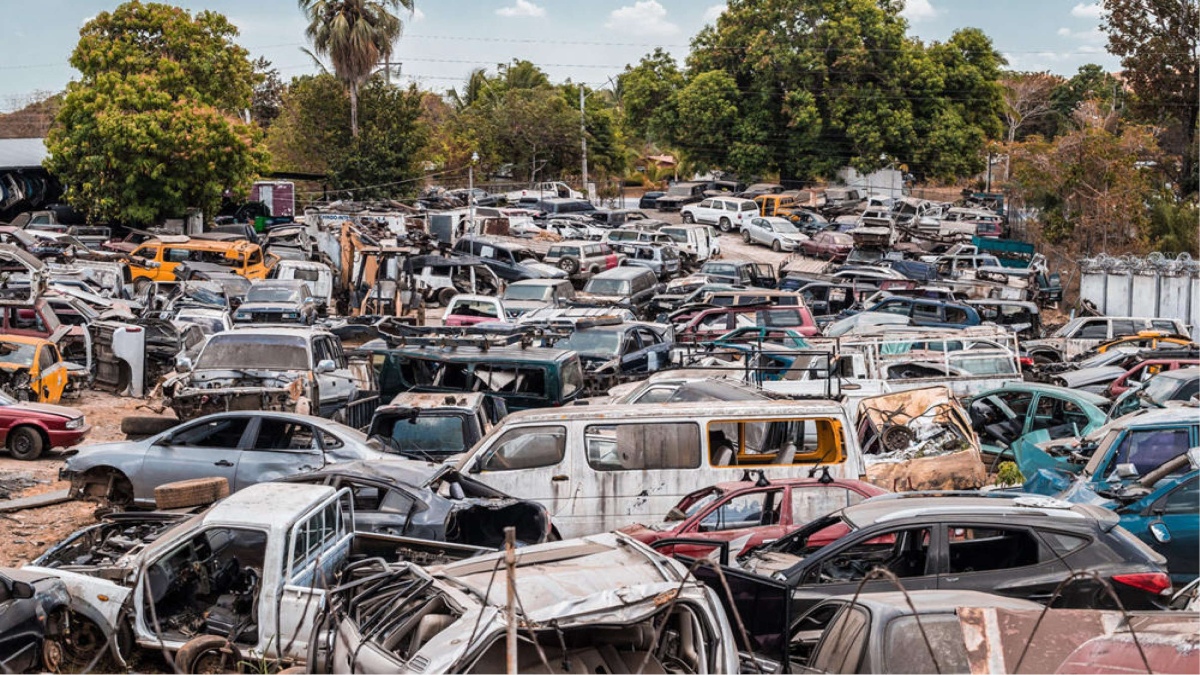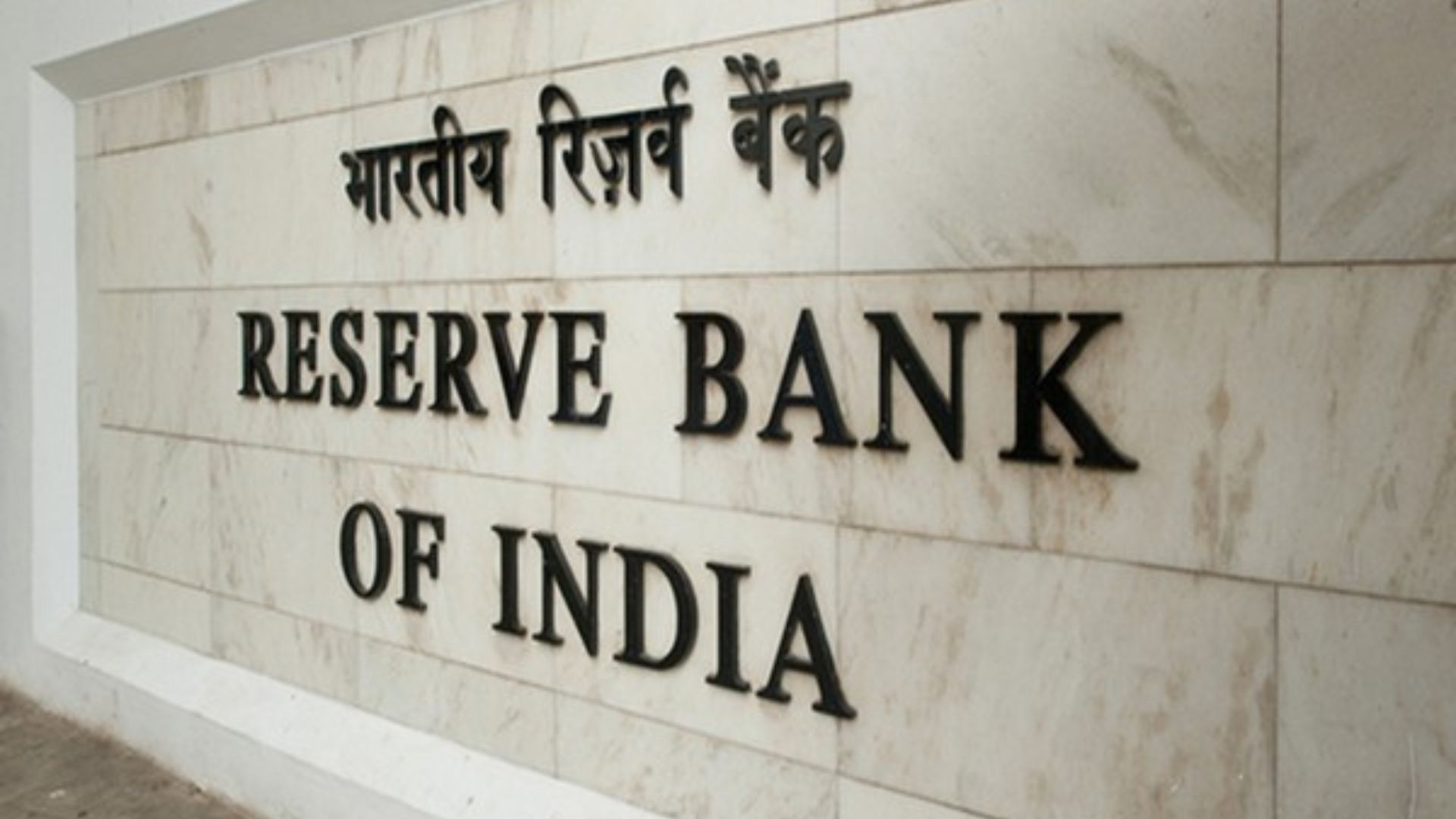The Budget Speech of the Finance Minister Smt. Nirmala Sitaraman in the Union Budget 2021 has swept a huge step to vacuum the twenty year or older unfit private vehicles and fifteen year or older commercial vehicles from its territory by introducing Voluntary Scrappage Policy which is yet to be released by the Ministry. In the speech, under the head “Swaach Bharath Swasth Bharath” followed by para narrating the allocation for funds for enhancing air quality across the nation, para.35 runs as follows:
SRCAPPING POLICY
36. We are separately announcing a voluntary vehicle scrapping policy, to phase out old and unfit vehicles. This will help in encouraging fuel-efficient, environment friendly vehicles, thereby reducing vehicular pollution and oil import bill. Vehicles would undergo fitness tests in automated fitness centres after 20 years in case of personal vehicles, and after 15 years in case of commercial vehicles. Details of the scheme will be separately shared by the Ministry.”
From the para I understand is by introducing voluntary vehicle scrapping policy, the government aims to phase out old and unfit vehicles so as to encourage eco-friendly and fuel efficient vehicles. The private vehicle of twenty year or older and commercial vehicle of fifteen year or old will be subject to undergo fitness test in automated fitness centers and if found unfit, owner has to leave the vehicle to scrap and in exchange get a new fuel efficient and eco-friendly vehicle. As the speech mentions the word vehicle, it will be applicable to all vehicles and not just to two wheeler or four wheeler or multi-axle vehicles.
EARLY THREADS
In 2016, a study was conducted by the Ministry of Road Transport and Highways for scrapping the older commercial vehicles and notification dated 19th November 2018 was issued inviting comments and inputs to finalize the said scheme. In the Note for Consultation with the States, it is said that the scrapping of older commercial vehicle is legally on section 59 of the Motor Vehicles Act to mandatorily de-register the commercial vehicle after completing life of twenty years. In the study, it was identified that a major contribution for poor air quality is led by the commercial vehicles of the said age. Under the head Financial Implications, the Ministry expected that the scheme would result in net financial gains to the tune of Rs.38, 300 Crores to the Central and State Government by April 2025. The Ministry through its study has identified seven lakh commercial vehicles as eligible to undergo scrapping. We should keep in mind that the notification is only to deal with scrapping of commercial vehicle and there was nothing to be done with the private vehicles.
Now the scenario is entirely different. Scrapping is applicable both to commercial and private vehicles. Including private vehicles has now attracted emotions, sentiments and obsession of general public at large. As the policy is yet to be released, the minds of people of this nation is trembling with the fear of forced departure of their vehicles to scrap. On the other hand, for entrepreneurs this will pose a great financial burden on the top of downsized business during the pandemic.
INTENTION OF THE GOVERNMENT
Government expressly states that this movement is to reduce pollution and enhance air quality across the nation and to lift the downsizing automobile sales across the India during the pandemic. As per reports, an owner can voluntary scrap his unfit vehicle and in exchange get a new vehicle. But subsidies and grants supporting for new buy is silent.
A TUNNEL TO ROUTE ELECTRIC VEHICLES
The voluntary scrap with respect to commercial vehicle has a back footing study but with regard to private vehicles, nothing is sufficiently seen. Already the petrol we get here is not the subsidized one and there is a scarcity of crude reported at worldwide platform. Many developed nations have already shown green flag to the electric vehicles which are identified as ‘once bought is a worth buy’. In India, mobility of vehicles in many cities are mainly by CNG by replacing petrol and diesel. But on a majority side, petrol and diesel is still under huge consumption. During the national lock down and post lock down stage, there was a huge drive created by many car manufacturing companies for electric car. Presently, Mercedez, Tata, MG, Hyundai and Mahindra has launched their electric cars and is successfully running though the cost is sparsely high. If the unfit private vehicles are scrapped in exchange of new vehicle, a major group of consumers will definitely opt for electric vehicles as an advance step to avoid next level scrapping of petrol-diesel private vehicles in a shorter span of future. Though the price is high, the vehicle gain into several good books such as eco-friendly and low maintenance cost and hence is considered as “Once bought is a worth buy”. Hence exchange for scrap should have some hidden agenda to tunnel route for electric vehicles in India.
STATUS OF PUBLIC TRANSPORT VEHICLES
As of now, there is no decision as to inclusion or exclusion of public transport vehicles from scrapping policy. Unlike metropolitan cities, there are many places in India where public transport is the only mode of transport. If the government actually intent to increase air quality by scrapping vehicles then, the public transport vehicles also be a part of this policy.
PRIVATE VEHICLE SCRAPPING
As already said, scrapping unfit private vehicles involve emotion, sentiment and obsession. Out of hundred Indian, every ten must be still maintaining and using departed his father’s or grandfather’s vehicle and is believed to be symbol of luck and blessing in every major step in their life.
Apart from this, a major category of people use 20 year and older vehicles due to short of money and fear of losing comfort that they have in their existing vehicle. These are the senior citizens and the persons reaching that stage who desire to stick on to the utmost comfort level that they enjoy. With respect to short of money, if financial aid is provided to lower middle, middle and upper middle class vehicle owners, then there is a chance to show willingness to exchange their vehicle. Their intention is not to buy a new vehicle but to get a vehicle at subsidized rate.
NO MORE VINTAGE VEHICLES?
Status of vintage vehicle remains a question. But on literal interpretation of the Budget speech delivered by the Hon’ble Finance Minister, it can be drawn that only those private and commercial vehicles which are identified unfit in the automated fitness test will have to be scrapped. That means if my vintage car pass the fitness test, then my car is safe. To be fit, the expense to be made on the vintage car will be high and may be burdensome to those passionate financially crunched vintage vehicle owners. With the Voluntary Vehicle Scrapping Policy, there will be a boom for garage space for vintage vehicles as most of the owners of vintage vehicles will be unwilling to scrap their unfit vintage vehicle and hence pose it as a heritage element forever. Hence vintage cars will soon be elephants as the maintenance cost is ultra-high.
DOES THE TERM VOLUNTARY IMBIBE FORCE?
The Policy is proposed to be titled as “Voluntary Vehicle Scrappage Policy”. The term voluntary is prefixed, in fact gives the sign of last and final warning to leave the unfit vehicles to scrap. It automatically gives an alarm to all unfit vehicle owners that if they are not voluntarily scrapped the vehicles, the concerned authority of the state and government is throw them to scrap.
With respect to huge commercial vehicles such as trucks, trailers etc., the owner concern for pollution from the vehicle comes only when pollution certificate is about to lapse. Till then, maintenance will be made in such a fashion that the purpose of the vehicle is met smoothly. This policy will not actually affect the huge industries but will affect the middle level industries and logistics who are not making magnetic profits.
EXPECT HIKE ON TRANSPORTATION COST
If old unfit vehicles are scrapped and new vehicles are on platform, the charges will be added extra in this behalf and will bring under some legitimate head, thereby increasing transportation cost of commodities. Ultimately the end users will have to exchange their unfit old vehicle and buy their groceries at considerably high rate. There is an added thrust to such hike is that most businesses are sinking and some are idle where the others are at revival stage due to the national lockdown due to pandemic. Hence we should expect hike in prices of commodities until government come up with some kind of financial support to the commercial unfit vehicle owners.
VEHICLE SCRAPPING POLICY ONLY IN INDIA?
Before cursing or applauding, there is a need to check whether vehicle scrapping policy is only in India or are there nations which are successfully doing it for years. Let us see.
The Vehicle Scrapping Policy is known in many names such as scrapping programme, Vehicle Efficiency Initiative, Environmental Premium and many more.
China is our neighboring country and has introduced Scrappage programme at national level in 2009. It had offered $450- $900 for trading in older heavy polluting cars and trucks for new until May 2010. In addition a total subsidy of $2,000 was provided and in 2010 the Government enhance the compensation rate to US$732- US$ 632.
In France, every owner of the vehicle older than 9 years are provided premium of 2500 Euros in exchange for new car. The total budget for the programme is 2,500,000,000 Euro.
In Japan, USD 3,700,000,000 was allocated for Scrappage programme in 2009 and continued till March 2010. The purchasing rebate was USD 1250 approx if trading a mini car which already has preferential tax treatment built to specification narrated as per the laws of Japan.
United Kingdom put forward a Scrappage incentive scheme in 2009 wherein scrapping a ten year old car allowed for 2,000 Pounds cash incentive and the burden is proportionally shared by UK Government and the Automobile Industry. The scheme was intended to support automobile industry after the recession due to which there are a great sale drop in new cars. On September further investment was made to extend the scheme and closed in March 2010. Many Vintage model cars were forced to be sold for new car.
In the United States, the car was exchanged for new fuel efficient cars and a total budget of USD 3,000,000,000 was allocated for the same in July 2009. At the end of the programme, Toyota recorded 19.4% of sales followed by General Motors with 17.6%, Ford 14.4%, Honda with 13% and Nissan with 8.7%.
VINTAGE CARS AND NATIONAL WEALTH
There is a winding threat in among the owners of the Vintage Cars that the Voluntary Vehicle Scrapping Policy would engulf there vintage vehicles. Keeping away the sentiments, Vintage cars or the classic cars constitute a pile of history. A fifteen year old Porche, Ferrari, Mazda etc. is considered to be rare pieces as its generation is upgraded quickly. Preservation and conservation of historic is a part of Indian culture and tradition. On the other hand, a classic example of value of vintage car can be seen in the price of E30M3 with low mileage is selling for $102,000/- due to low supply and high demand. In 2017, DLF in association with Heritage Motoring Club curated a vernacular vintage car rally in the NCR region with 28 vintage cars across the country. Heritage is considered as a part of national wealth and hence vintage vehicles too.
UPCOMING TUG
OF WAR
Anything has worked perfectly smooth nowhere. One of the main aim of the government through the voluntary vehicle scrapping policy is to lift the downsizing automobile industry. The requirement to be met to continue use of a stipulated old private or commercial vehicle is to achieve fitness certificate. In order to retain the vehicle many people opt for illegal means to get fit fitness certificate.
Whereas the automobile industry will revive only if vehicles are certified unfit and government provide subsidy to opt for a new car. The agenda of automobile industry is to create unfit fitness certificate as much as possible and there lies a fragrance of upcoming corruption illegal adjustments between the software development companies and automobile industries to manipulate the software for successful ‘unfit beep’. This notion is because of the various illegal adjustments and corruption in the name of governmental schemes and policies that we have seen till date.
Therefore there is an upcoming tug of war between the owners of old private and commercial vehicles and the automobile industry.
LEGAL IMPLICATIONS
As far as the Policy is not yet released the legal implications cannot be accurately portrayed. Still there are several points that is to be considered to save the policy being tagged as biased. Let us see what will be the legal implication if para 36 of the Union Budget in implemented fully.
a. Violation of Fundamental Rights: Even though right to life and health is given paramount importance, right to food and livelihood also plays a major role in preserving the right to life. As already said, if the transportation costs are increased as aftermath of this policy, then the affordability of a commodity will be affected drastically. In cases of non-allotment or insufficient allotment of subsidy to the owner of an old private vehicle, that will tremble his life standards if the fitness test turns out to be unfit. In case of commercial vehicle owners, the unfit fitness certificate will infringe his freedom of trade as commercial vehicles cost apparently high and the owner will be forcefully taking loans for new vehicle during the pandemic business crunch.
b. The intention is to revive automobile industry. There are chances for unfair competition and trade practices to achieve a profit that would cover the entire loss of the industry during the recession.
c. There will be fluctuations in the share price of automobile industry players in the market due to immediate boom.
d. There will be questions with regard to equality with respect to owners holding many unfit vehicle and one unfit vehicle. Equality may be based on subsidies, compensation etc.
WHAT ABOUT GREEN TAX?
The Central Government has approved to levy green tax for vehicles of 8 years or older. The tax percent vary from 10 %-50% of the road tax at the time of issue of fitness certificate. Fifty percent will be charged in highly polluted cities such as Delhi, Kolkata etc. For Personal vehicles the tax will be collected at the time of renewal of registration after 15 years. The revenue so collected shall be maintained by the Ministry of Road Transport and Highways in a separate account and the details will be released through press release. The revenue will be utilized for mitigating pollution issues due to vehicles.
IMPACT
If I hold an 8 year old commercial vehicle I will be levied green tax i.e. at least 10% of the road tax. If I hold a private car of 15years of age, then on renewal of registration, I will have to pay green tax or my vehicle will be given up for scrap if turned unfit.
Any way a vehicle at least older than 8 years will be a source to feed your financial resources towards the revenue. In short what the government is indirectly showcasing is that people may not hold their vehicle for more than 8 years.
CHALLENGING CAPACITY
With regard to challenging the voluntary vehicle scrapping policy, it will be possible once the policy is released and a law is made on that behalf. Presently we can raise our voice but our hands are tied until law is released.
CONCLUSION
Demonetization was shocking. Many were caught. Many were already known about it and carefully played. Others were on disaster on temporary basis to get new notes. At the same time fake are still circulating. Likewise, many will be caught, others may be in financial crunches if subsidy is insufficient. There is a much awaited drastic competition in automobile industry is on kick start. We should not have any preconceived notion based on a single statement delivered by the Finance Minister in Union Budget 2021. Let us wait for a balanced and satisfying voluntary vehicle Scrappage policy.
If I hold an 8-year-old commercial vehicle, I will be levied green tax, i.e., at least 10% of the road tax. If I hold a private car of 15 years of age, then on renewal of registration, I will have to pay green tax or my vehicle will be given up for scrap if turned unfit. Anyway, a vehicle at least older than 8 years will be a source to feed your financial resources towards the revenue. In short, what the government is indirectly showcasing is that people may not hold their vehicle for more than 8 years.













